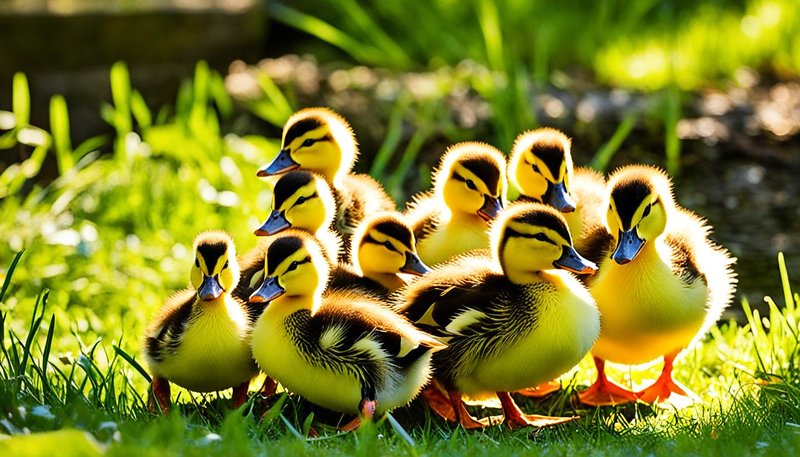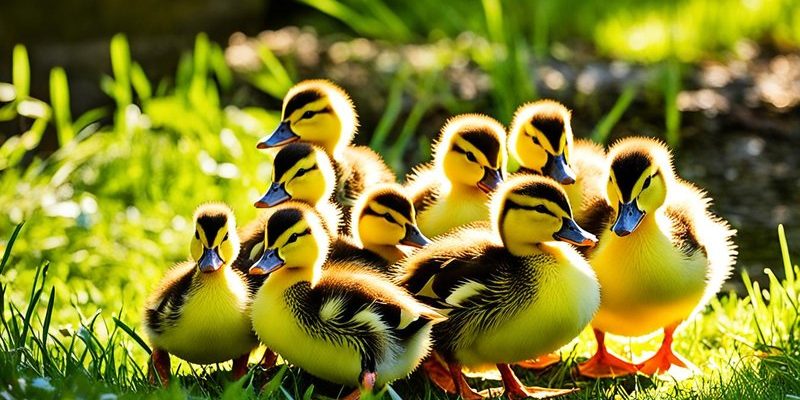
Ducks are social creatures, and they thrive in a community. That means when it’s time to introduce new ducks, it’s essential to do so thoughtfully. A well-prepared introduction can prevent pecking order disputes and ensure everyone feels comfortable. In this guide, I’ll share some effective strategies to help you bring your new ducks into the fold. Let’s dive in!
Understand Your Current Flock Dynamics
Before you introduce new ducks, it’s crucial to take a good look at your current flock. Every group of ducks has its own social structure, with established hierarchies. Understanding how your current ducks interact will help you anticipate how they might react to newcomers.
Watch for patterns in behavior. Do certain ducks always stick together? Do you have a dominant duck that likes to call the shots? By observing these dynamics, you can identify potential trouble spots. For example, if your lead duck tends to be a bit aggressive, you’ll want to monitor interactions closely once the new ducks arrive.
Another aspect to consider is the age and breed of your existing ducks. Some breeds are more sociable and tolerant than others. For instance, Pekins are often known for their friendly nature, while some more dominant breeds may require a more careful introduction process. Knowing your ducks can help you tailor your approach.
Choose the Right Timing
Timing can make all the difference when introducing new ducks to your flock. The best times for introductions are typically during warmer months when the ducks are more active and social. Early morning or late afternoon can also be good times since ducks tend to be calmer during these hours.
Consider the age of the new ducks as well. Generally, younger ducks may integrate more easily with older ones, while older ducks might need extra time to adjust. If your current flock is also going through stress—like a recent change in housing or environment—it’s probably best to wait until things settle down.
Patience is key. You don’t want to rush the process, as this can lead to stress for both your existing ducks and the newcomers. Taking the time to introduce them properly will benefit everyone in the long run.
Preparing a Safe Space for New Ducks
Creating a safe space for your new ducks is essential to a successful introduction. Before they arrive, set up a separate area where they can acclimate without feeling threatened. This space can be a small pen or coop adjacent to the main area where your existing flock resides.
Make sure this safe space has everything the newcomers need, like food, water, and shelter. Fresh bedding and some hiding spots can help them feel secure. Let them get used to their new environment for a few days before attempting to mix them with your current ducks. This time allows them to adjust without added pressure.
During this period, let your existing ducks observe the newcomers from a distance. They’ll be curious, and this visual introduction can help them familiarize themselves with the idea of new friends without immediate contact.
Gradual Introductions: The Key to Success
Once the new ducks are comfortable in their safe space, it’s time for gradual introductions. Start by allowing the existing ducks to see the newcomers up close. You can let them share a fence or a barrier, giving them the chance to interact without direct contact.
Feed both groups at the same time, but keep them separated. This way, they can associate each other’s presence with something positive—like food! Gradual interactions can last several days, allowing everyone to get used to one another.
After a week or so of managed interactions, you can start introducing the ducks in a controlled environment. Choose a neutral space outside of their usual areas, as this will minimize territorial behavior. Keep a close eye on their interactions at first. Be prepared to step in if any aggressive behavior emerges.
Monitor Interactions and Manage Conflicts
Even with the best preparations, conflicts can arise when introducing new ducks to your flock. Watch their behavior closely during initial face-to-face meetings. If a duck is being overly aggressive, you might need to separate them temporarily.
It’s not uncommon for the pecking order to change during this process. Some ducks may establish dominance over others, and this can lead to squabbles. Be sure to give them plenty of space and allow them to work it out. Stressful as it may seem, ducks usually sort out their hierarchy with minimal intervention.
If you notice any persistent bullying, consider regrouping the ducks and returning to the gradual introduction phase. Maybe they need a little more time apart before trying again. Remember, the goal is for everyone to feel safe and secure.
Building Long-term Relationships
After the initial introductions, it’s important to continue fostering positive interactions among your ducks. Spend time with them daily, observing their behavior and ensuring they are comfortable around one another. You might find that they begin to bond over shared activities, like foraging or swimming.
Consider introducing enrichment activities to your flock’s routine. This can include things like treats or toys that they can explore together. Treats can be a great way to encourage interaction and build camaraderie. Just be sure to distribute treats evenly to prevent jealousy.
Over time, you’ll notice your ducks developing a more cohesive bond. With consistent monitoring and gentle encouragement, they’ll establish a new social structure that includes the newcomers, leading to a harmonious flock.
Final Thoughts on Introducing New Ducks
Introducing new ducks to your flock doesn’t have to be a stressful experience. With patience and the right approach, you can create a welcoming environment that helps everyone feel safe and included. Remember to observe your flock dynamics, choose the right timing, and take things gradually.
Let’s be honest; raising ducks can be a little chaotic, but it’s also incredibly rewarding. So take a deep breath, enjoy the process, and watch as your flock grows both in size and community. The more love and care you put into it, the more delightful your duck adventures will be!

